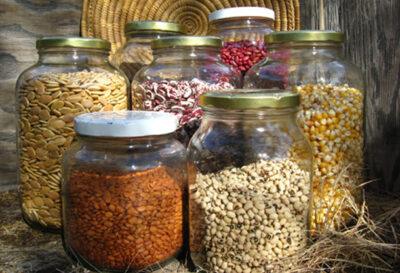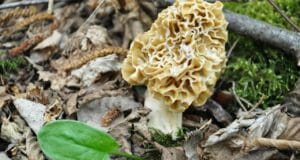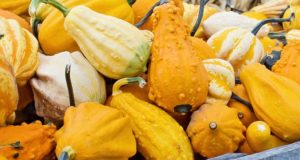Italy’s first McDonald’s was about to open in Rome, and journalist and gastronomist Carlo Petrini was not going to stand idly by. Petrini assembled his friends and community to protest the global industrialization of food and take a stand for “slow food.”
That was in 1986, and Petrini and his fellow foodies didn’t succeed in keeping McDonald’s out of Italy. But three years later under Petrini’s passionate leadership, Slow Food International was officially founded in Paris and delegates from 15 countries signed the Slow Food Manifesto, pledging to “rediscover the rich varieties and aromas of local cuisines … by advocating historical food culture and by defending old-fashioned food traditions.”
December 10 marks 25 years since Slow Food International was founded. Since that time, the organization has grown to include over 150,000 members in 150 countries, including national chapters in Italy, Germany, Japan and the United States. Slow Food USA was founded in 2000 and now has more than 175 chapters across the country.
Slow Food’s most significant contribution is the Ark of Taste. Like Noah’s ark, it is a carefully curated collection of plants and animals that are at risk of extinction. Heirloom seeds and heirloom animal breeds are catalogued, and consumers are linked with distributors to ensure that these foods remain in production and on our plates. The Ark of Taste is a great boon for gardeners and families who want to help preserve biodiversity, save their own seeds, and produce their own food without relying on big-box food corporations.
Heirloom Seeds
What’s all the fuss about heirloom seeds, anyway? For millennia farmers have saved seeds from one year’s crop to plant the following year, and seeds were passed down from generation to generation (hence the name “heirloom”).
Get Delicious, Nutrient-Dense Heirloom Seeds Here!
Gardeners saved seeds from plants that showed the best characteristics of their generation. Traits like hardiness, disease resistance, and, of course, good flavor were gradually increased in the plant’s population. Once they are bred to top quality, vegetables yield the same characteristics when their seeds are saved and grown year after year. For thousands of years food production followed this pattern: Food was grown locally from heirloom seeds and eaten in season.
All that changed mid-20th century when the processed foods industry created the demand for every food in every season. States like California could grow crops year-round and send them by truck or train to factories or consumers thousands of miles away. Farmers began to look for crops that could be transported long distances and still look presentable in grocery stores. Flavor and variety were traded for uniform appearance and tolerance for hard travel. To meet market demands, eventually many farmers began casting off heirloom seeds in favor of hybrid crops and GMOs.
Hybrids
Hybrid varieties cross members of the same species to combine the ideal traits of parents into one plant. Early fruiting tomatoes are crossed with disease-resistant ones, for instance. Thanks to their unique parentage, hybrid seeds often produce big yields. But just as hybrid animals (like mules) can’t reproduce, many second-generation hybrid plants can’t, either. So instead of saving seeds, gardeners are forced to keep buying hybrid seeds from the companies that create them, year after year.
GMOs
One step further than hybridization, genetic modification manipulates genes of plants or animals directly in a laboratory. Without the limits of natural reproduction, different species can be crossed together in wacky ways: animal or bacterial genes are spliced into the chromosomes of plants, and vice versa. Like hybrids, genetically modified organisms (GMOs) are often viable for only one generation, forcing farmers to re-purchase seeds every year. Some GMOs have even been engineered to need special chemical formulas to grow properly; these formulas are sold and marketed by—you guessed it—big seed corporations.
Major Food Collapse Coming?
As farmers abandoned heirloom varieties for hybrids and GMOs that were friendly to mass production, thousands of traditional food varieties were lost. In fact, we’ve lost so much biodiversity in our food that modern consumers now eat less than 1 percent of the vegetables that used to be grown in the United States.[i] Some foods can be found only in backyard gardens or small private farms, and many heirloom varieties have been lost entirely. And the problem keeps getting worse. In, 1981, about 5,000 non-hybrid vegetable varieties were available from seed catalogs; in 1998, the number was down to 600.[ii]
It’s not just seeds, either. We’re raising fewer and fewer kinds of animals, focusing just on breeds that fatten up quickly in large-scale commercial farms. Different turkey species, for instance, were once a staple of American cuisine, but now 99 percent of the 400 million turkeys Americans consume every year are a single breed, Broad-Breasted White.[iii]
New Natural Fertilizer Doubles Garden Production!
This homogenization of plant and animal species means that we are always flirting with the possibility of a major food collapse. Plant and animal diseases attack their hosts a little differently each season, depending on changes in conditions and climate. Genetic engineering can’t predict diseases or weather patterns; that’s where genetic variability comes in. For a species to survive and adapt in the face of a blight or disease, it must have as diverse a gene pool as possible. And we would be wise to cultivate and eat a wide variety of foods, too, rather than relying on just a few staples (as the Irish did before the Great Famine).
Aggressive Measures by Seed Companies
Not only are heirloom seeds on their way out, seeds in general are controlled by only a few tight-fisted corporations. Six companies — Monsanto, Syngenta, Mitsui, Aventis and Dow — control 98 percent of the world’s seed sales. In 2005 Monsanto acquired Seminis, a company that already controlled about 40 percent of the U.S. vegetable and seed market. And they aren’t stopping there; every year Monsanto budgets $10 million to prosecute seed-savers![iv]
Anyone who wants to end their dependence on big-box food and seed corporations and prepare for a food collapse would do well to purchase heirloom foods. But, of course, seeds and animals can’t be hoarded and stored indefinitely. The only way to preserve them is to buy them, raise them, eat them, and grow more of them. And that’s where the Ark of Taste comes in.
The Ark of Taste
Slow Food International has developed an Ark of Taste for each ecoregion to preserve that region’s local foods that are in danger of extinction. Each Ark of Taste sustains seed banks and preserves heirloom animal varieties, too.
What are the criteria for a food to be placed on the Ark? There are four requirements:
- These plants or animals are only produced in limited quantities, so without immediate action they won’t be around in a generation or two.
- Whether an animal breed, fruit, vegetable or grain, these foods are prized for their exquisite flavor.
- No genetically modified or hybrid foods are allowed, and all foods can be produced without harm to the environment.
- Foods must be accessible to everyone; no Monsanto-patented varieties are allowed, but only foods that anyone may produce, share and sell.
The Slow Food USA Ark of Taste catalogs nearly 250 delicious foods traditionally grown in America that are now facing extinction. The Ark includes everything from turkeys to turnips and the online catalog links to distributors where you can buy seeds, animals or ready-to-eat food. Not to mention that it’s worth perusing for the names of the foods alone. Anyone fancy some Amish Deer Tongue Lettuce or Elephant Heart Plums? How about Sheepnose Pimiento or Tennessee Fainting Goat?
Anyone who has ever eaten a homegrown tomato knows that there’s a huge difference between homegrown foods and their colorless, flavorless versions sold in supermarkets. With heirloom varieties, the difference is even more phenomenal; you can taste all the flavor and goodness our ancestors enjoyed, and be self-reliant like they were, too.
Why do you support Heirloom seeds? What are other negative consequences of not using them? Leave your reply in the section below:
Works Cited
Kingsolver, Barbara. Animal, Vegetable, Miracle. New York: Harper Collins, 2007.
SlowFoodUSA.org. “Ark of Taste.” 2014. Accessed 11/4/2014.
SlowFoodUSA.org. History. “A Delicious Revolution: How Grandma’s Pasta Changed the World.” 2014.
SlowFoodUSA.org. “Slow Food Manifesto.” 2014. Accessed 11/8/2014.
SlowFoodUSA.org. “What We Do.” 2014. Accessed 11/3/2014.
[i] Kingsolver, 49.
[ii] Kingsolver, 52.
[iii] Kingsolver, 90.
[iv] Kingsolver, 52.
 Off The Grid News Better Ideas For Off The Grid Living
Off The Grid News Better Ideas For Off The Grid Living






